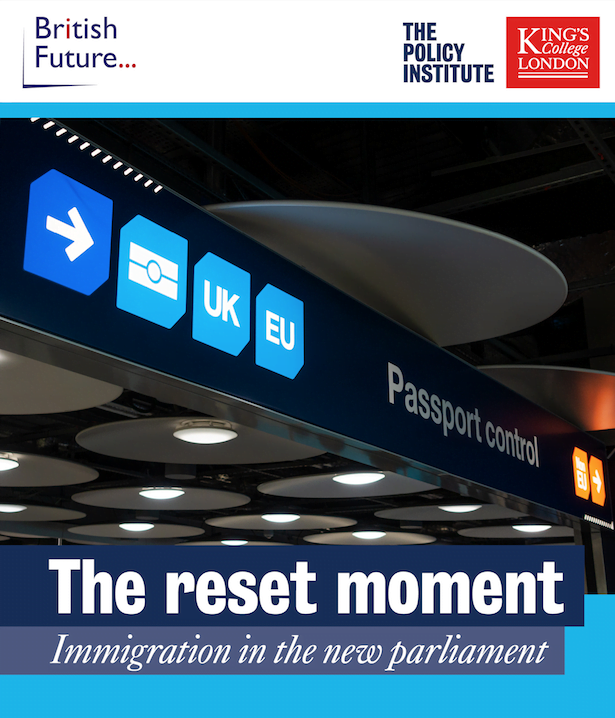Understanding public attitudes to immigration. Proposing reforms to restore public confidence that immigration can work fairly for all of us.
Britain’s post-Brexit immigration approach needs to rebuild public confidence and secure political consent, while meeting the needs of the economy, public services and our global obligations. That will require a much deeper level of public involvement, to address people’s anxieties and respond with a system that manages the pressures and secures the gains of immigration.
Advocates for the gains of migration do not have the public and political support they need. We work with civil society, employers and political voices to develop public messages, policy agendas and broader coalitions to engage concerns effectively by proposing constructive solutions.
The findings from our National Conversation on Immigration project inform our approach to policy change.
British Future, together with Hope not hate and the Home Affairs Select Committee, conducted the biggest-ever public consultation on immigration in 2018. The National Conversation on Immigration comprised over 130 meetings with local citizens and stakeholders in 60 locations across every nation and region of the UK, together with an online survey and nationally representative research by ICM. In total 19,951 people took part. Read its final report here.
 Date: 6 October 2021
Date: 6 October 2021
Heather Rolfe reflects on PM Boris Johnson’s conference speech & suggests the public may not see a binary choice between skills & immigration.
 Date: 14 September 2021
Date: 14 September 2021
Public attitudes to immigration are more positive than negative across a range of measures, according to the latest findings from Ipsos MORI research that has tracked changing public attitudes to immigration across twelve waves of research since 2015.
 Date: 20 August 2021
Date: 20 August 2021
Letter to The Times urging a generous refugee resettlement programme for those forced to flee Afghanistan following the Taliban’s seizure of power.
 Date: 28 July 2021
Date: 28 July 2021
70 years ago, the UK and other countries signed the UN Refugee Convention. Since then it has saved thousands of people’s lives. To mark the anniversary, refugees from across those seven decades came together to celebrate this proud history – and to re-make that promise to welcome those who most need our help.
 Date: 25 May 2021
Date: 25 May 2021
Steve Ballinger reports from the ‘What next for immigration?’ conference, jointly hosted by British Future and Bright Blue.
 Date: 5 May 2021
Date: 5 May 2021
How will migration to the UK look in the future, and what will that mean for public attitudes? Asks British Future’s Director of Research and Relationships, Heather Rolfe.
 Date: 27 November 2020
Date: 27 November 2020
Having accidentally met the net migration target that dogged his predecessors, largely by accident, what next for PM Boris Jonson’s immigration policy?
 Date: 19 May 2020
Date: 19 May 2020
Most people think care workers and other low-paid migrant workers doing ‘important jobs’ should be exempt from a proposed ‘salary threshold’ – new poll.
 Date: 16 March 2020
Date: 16 March 2020
‘The reset moment: immigration in the new parliament’ by British Future and the Policy Institute at King’s College London, draws on new ICM research into public attitudes to immigration and integration.